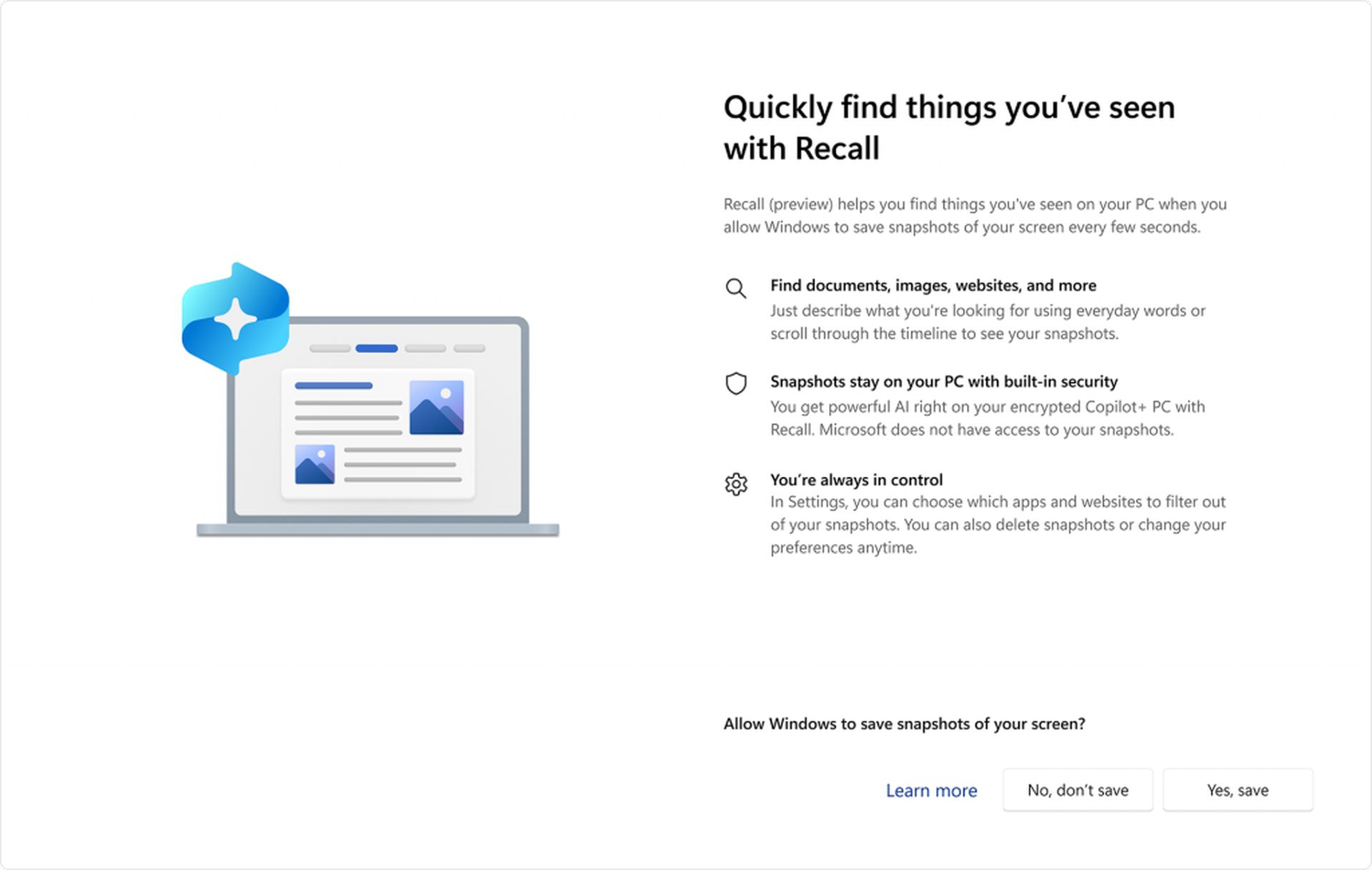Microsoft makes Recall an optional feature on Copilot+ PCs after receiving substantial feedback from the public. This feature, initially introduced just over a month ago, was designed to enhance the searchability of a user’s PC history through AI.
However, public concerns about Windows 11’s Recall on privacy and security led Microsoft to reconsider its approach. The company responded by making Recall optional and implementing several key updates to address these concerns.
Backlash and Microsoft’s response to Recall
When Microsoft first announced Recall for Copilot+ AI PCs, the feature was intended to streamline the way users interact with their PC’s history. Recall was meant to offer a more intuitive way to search through past activities, leveraging the capabilities of artificial intelligence. Despite its intended benefits, the public’s reaction was far from positive. Many users voiced concerns about the potential for privacy invasions and the security of their personal data.

These concerns prompted Microsoft to reevaluate Recall and make significant changes. According to a blog post from Microsoft, the company listened to the feedback and decided to make the feature optional. This change means that during the initial setup of a new Copilot+ AI PC, users will be asked if they want to enable Recall. This opt-in approach allows users to have greater control over their privacy right from the start.
Enhanced security measures
Alongside making Recall optional, Microsoft introduced several security enhancements to the feature. One of the primary updates involves the use of Windows Hello, a security function that uses facial recognition, fingerprint scanning, or a PIN to authenticate users. To enable Recall and access the timeline of PC activity recorded by the AI, users must go through Windows Hello. This adds a layer of security, ensuring that only authorized users can access sensitive data.
Moreover, Microsoft has implemented full encryption for all snapshots taken by Recall, as well as the search index database. These encrypted files are stored locally on the user’s PC, reducing the risk of unauthorized access through cloud services. Although the data is stored locally, it remains encrypted and can only be decrypted when unlocked via Windows Hello. This move aims to address the main concern that if someone else logged into the same PC, they could potentially access the Recall data.
User feedback was not ignored this time
The changes to Recall highlight Microsoft’s commitment to listening to user feedback and acting accordingly. In their blog post, Microsoft acknowledged that they had “heard a clear signal” from the public about the need for better privacy and security safeguards. This acknowledgment and the subsequent updates demonstrate Microsoft’s willingness to adapt its technologies to meet user expectations and address their concerns.

One notable aspect of the changes is that all data handled by Recall is encrypted. While encryption was part of the original design, it now specifically covers the snapshots and search index database. Initially, Microsoft relied on Bitlocker for disk encryption, which, while effective, did not provide the specific protections needed for the vast amount of personal information Recall would handle. The updated encryption practices are more robust, aiming to secure the data more effectively.
Future outlook for Recall
The updates to Recall are set to roll out with the Copilot+ AI PCs on June 18. However, it is important to note that this feature will be exclusive to these specific devices. Users running Windows 11 on other hardware, such as x86 desktop PCs or laptops, will not have access to Recall, although non-NPU PCs can run Recall, at this time. Microsoft has not yet indicated whether Recall will be made available on other platforms in the future.
By making Recall optional and enhancing its security features, Microsoft aims to rebuild trust and provide users with a more secure and user-controlled experience. The company’s prompt response to public feedback and its efforts to improve privacy safeguards underscore its commitment to delivering technologies that meet the needs and expectations of its users.
Featured image credit: Microsoft





